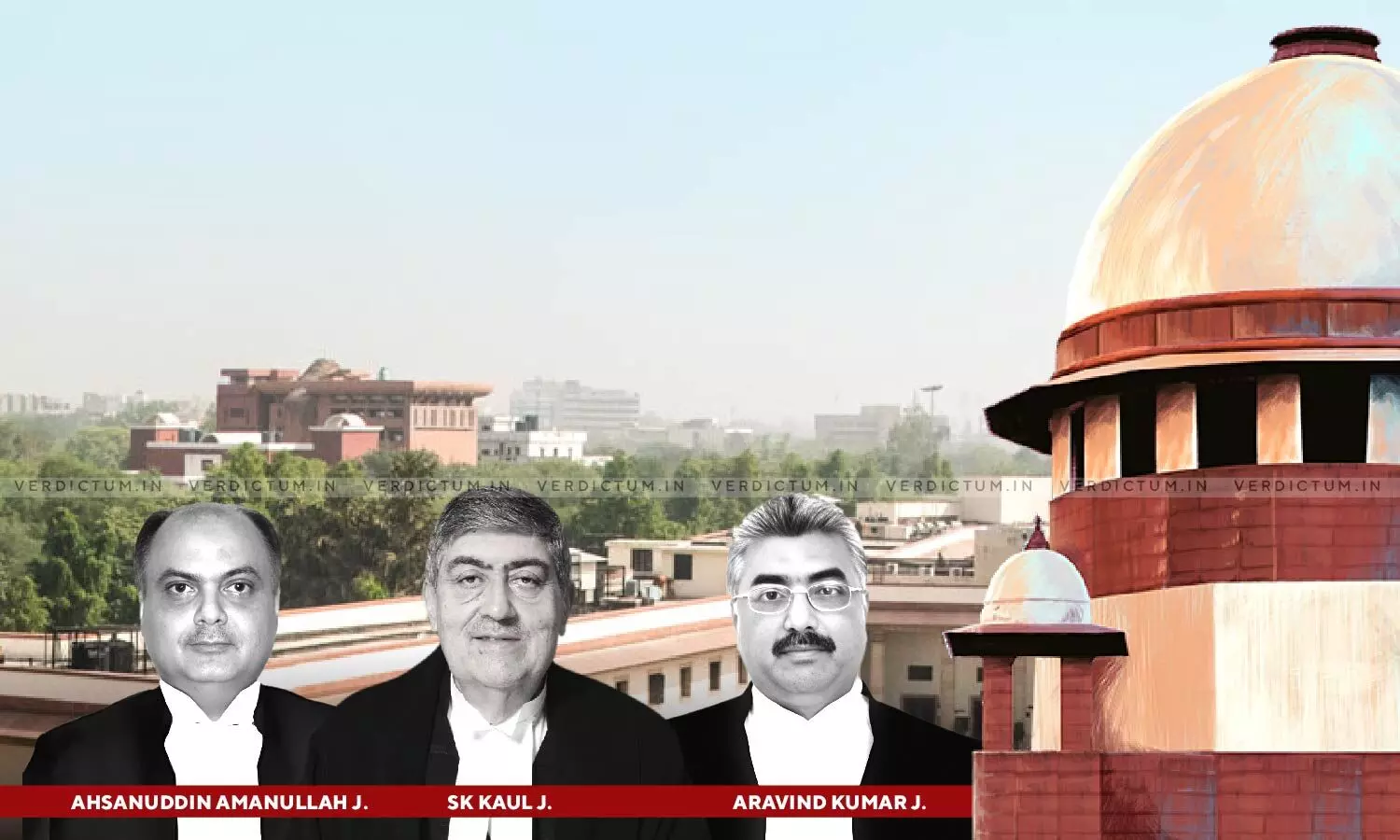
Probity In Financial Transactions Should Be The Rule Instead Of Exception- SC Emphasises
 |
|A Supreme Court Bench of Justice Sanjay Kishan Kaul, Justice Ahsanuddin Amanullah and Justice Aravind Kumar has stressed the importance of honesty while holding that in financial transactions, probity should be the rule instead of the exception.
Counsel Sudhanshu S Choudhari appeared for the appellant.
In this case, the appellant was elected as a member of the Zilla Parishad as the candidate of a recognised party. The appellant's son had applied to an e-tender was floated by the Gram Panchayat and and was successful against two other applicants. The respondent filed the petition under Sections 40 and 16(1)(i) of the Maharashtra Zilla Parishads and Panchayat Samitis Act, 1961. He claimed that the appellant had misused his elected post with the object of gaining undue personal financial benefit.
Notably, Section 16(1) of the Act provides that a person shall be disqualified if he has directly or indirectly by himself or by his partner any share or interest in any work done by order of the Zilla Parishad or in any contract with, by or on behalf of, the Zilla Parishad.
Subsequently, the appellant was disqualified from his position through an order passed by the Divisional Commissioner.
The Supreme Court observed that the interpretation of disqualification provisions in an overly restrictive or narrow manner had been cautioned against in the past. It also observed that the salutary purpose of such provisions was to ensure the purity of administration in Municipal Committees.
The Court proceeded to note that "this was not even a situation where the appellant’s son was carrying on any existing contractual work. It was only soon after the election of the appellant that his son was registered as a contractor. He had no other contracts in that area or otherwise. The only contract awarded to him was the one where the funds flowed to the Gram Panchayat from the Zilla Parishad of which the appellant was a member. The appellant had attempted to justify this situation by claiming that his son was registered as a contractor soon after the appellant’s election as he had just completed his studies".
This fact further raised the Court's suspicions about the appellant’s interest in his son’s business.
Subsequently, the Court observed that "probity in such financial transactions should be the rule rather than the exception. The appellant had a greater responsibility as a father to make sure that his son does not enter into a contract that is sanctioned by the Zilla Parishad itself. We may note the finding of fact by courts below that nothing had been placed on record to show even a separation of residence between the son and the father, other than a ration card purporting to show that the son was living with his grandmother".
In light of the same, the appeal was dismissed. Parties were left to bear their own costs.
Cause Title: Virendrasing v. The Additional Commissioner & Ors.